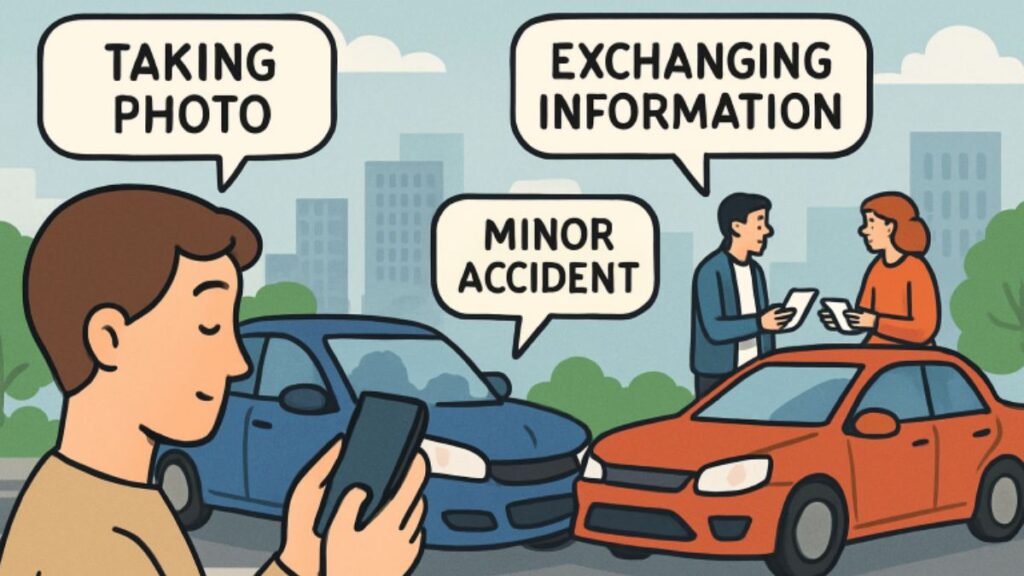Initial Steps at the Scene of a Car Accident
The immediate aftermath of a car accident can be overwhelming. Begin by checking yourself and others for injuries and calling emergency services if anyone is hurt. Never leave the scene—your safety and that of others is the top priority. If it’s safe and your vehicle creates a hazard, move it to a safer location nearby to prevent further accidents.
Exchange necessary information with all parties involved. This includes names, contact information, driver’s license numbers, insurance details, and license plate numbers. Remain as calm as possible—staying composed will help you think clearly and ensure the situation is handled appropriately. If you’re uncertain about your legal standing or potential next steps, consulting with a Los Angeles car accident lawyer can help you protect your rights right from the start.
Avoid heated arguments or discussions about who is at fault at the scene. Tensions can run high, but your focus should be safety and gathering accurate information. Remaining calm also helps when interacting with law enforcement and witnesses, who can be crucial if you need legal support later.
While it might feel instinctive to apologize or accept blame—even if you’re not entirely at fault—resist doing so. Anything you say could be used against you during insurance claims or legal proceedings. Just exchange facts, not opinions, as you gather information about the accident.
Gathering Evidence and Documentation
Thorough documentation is essential, especially when identifying the proper evidence to gather in car accident cases.. Use your phone or camera to take photos and videos of vehicle damage, road conditions, license plates, traffic signs, and any visible injuries. Try to capture the broader context, not just close-ups, to depict how the accident happened accurately. Write down the time, date, exact location, weather conditions, and the direction you and the other driver(s) were traveling.
If there are witnesses, ask for their names and contact details. A neutral third-party account can help clarify who was at fault. The more accurate and complete your documentation, the stronger your position regarding insurance or legal claims later on.
When and How to Notify Authorities
Laws vary by state, but in general, it’s wise—and often legally required—to file a police report, especially if there are injuries or substantial property damage. Call the police and request an official report even for seemingly minor accidents. If officers don’t arrive, you may need to file a report at the nearest police station.
If a police report isn’t filed, you may face challenges with your insurance company or when seeking compensation. Official police reports serve as a neutral record and favorably support your claim. For more on incident management basics, see this National Highway Traffic Safety Administration guide.
Contacting Your Insurance Company
Notify your insurance provider about the accident as soon as possible. When speaking with them, describe the facts—avoid speculating about fault or offering long explanations. Don’t downplay injuries or damages, as this could delay or jeopardize your claim. Ask questions about your coverage to understand what’s included, like rental car coverage or medical payments.
Your insurance policy will determine how expenses are handled and what documentation you need to support your claim. Keep a copy of anything you send to your insurer, and always get written confirmation of what you discuss or agree on over the phone.
Common Mistakes That Can Jeopardize Your Claim
- Admitting fault prematurely: Accepting responsibility without knowing all the facts can make you legally liable, even if the other party shares blame.
- Delaying medical treatment: Not seeking prompt care can worsen your injuries and may be used by insurers to downplay the seriousness of your injuries.
- Ignoring deadlines or paperwork: Missed reporting or filing deadlines can result in lost benefits or denied claims.
Understanding Compensation: What Am I Entitled To?
After an accident, you may be entitled to compensation for property damage, medical bills, lost wages, and pain and suffering. The specific types of damages and how much you can recover often depend on fault, insurance policy terms, and state laws. In many states, fault is determined using police reports, witness statements, and evidence from the scene. Both parties might be assigned a percentage of fault if liability is shared.
Understanding how fault and compensation are determined can help you better navigate discussions with insurers and set realistic expectations for financial recovery.
Dealing with Medical Bills After an Accident
Your auto insurance may pay for immediate medical treatment if you have medical payments (MedPay) or personal injury protection (PIP) coverage, or it may be done through the at-fault party’s insurer. Keep records of all expenses, including hospital visits, physical therapy, medication, and follow-up appointments. Insurance Information Institute offers a detailed guide to the steps you should take after a crash, especially regarding medical coverage.
Ensure that medical providers bill your insurance when possible, and check your policy limits so you’re not caught off guard by exclusions or caps on payment.
Knowing When to Seek Legal Advice
Consider seeking professional legal guidance if your accident involves serious injuries, disputed fault, insurance delays, or uncooperative parties. Legal professionals can help you understand your rights, negotiate with insurers, and, if necessary, file a lawsuit to recover fair compensation. Look for signs—such as inconsistent stories from the other driver, difficulties with your insurance company, or pushback on legitimate injury claims—indicating it’s time to consult a professional.
Having an experienced advocate can prevent costly mistakes and help ensure your interests are protected at every step.
Conclusion
Getting into a car accident can be frightening, but taking the proper steps afterward can make a significant difference in your recovery process, your insurance claim, and your legal rights. Remember to put safety first, gather evidence, report promptly, and avoid admitting fault before the facts are clear. Knowing your rights—and when to ask for help—will empower you to navigate any post-accident challenges confidently.






